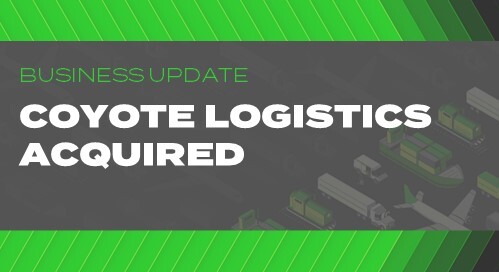The Shipper and Carrier Guide to Coyote Email Communications
As the industry continues to press forward with digitalization, scammers are finding new, clever ways to try and access information. This includes email phishing attacks where scammers will impersonate providers to access confidential information from shippers and carriers.
The best way to avoid these scams is to confidently identify and report them.
To help our network verify emails from Coyote Logistics as valid, we’ve compiled the following list of trusted email domains.
Read on to learn more about Coyote email communications. As always, if you have questions, reach out to your Coyote rep for more information.
Verified Coyote Email Addresses
Email communications are an important part of how we receive and share information with shippers and carriers. It’s critical to be able to recognize our verified email domains.
Coyote sends email communications through the following email domains:
- @coyote.com
- @ctm.coyote.com
- @ship.coyote.com
- @coyotenotifications.com
Please note that all emails from your Coyote rep will come from “@coyote.com” or “@ctm.coyote.com” email addresses.
You may also receive communications from the following trusted Coyote vendors:
- @coyote.cso.coupahost.com
Emails that may appear to be from Coyote that come from different domains are likely spam or phishing attempts that should be reported.
Notice on Common Phishing Attacks
Two common phishing attacks are attempts to secure passwords and banking information.
Please note:
- Coyote will never update our banking information for payments via email. If you receive an email regarding a change to our banking information, it is fraudulent and should be reported as phishing.
- Coyote reps and employees will not request your password for any of our digital freight platforms via email. That includes CoyoteGO® for Shippers, CoyoteGO for Carriers or CoyoteGO Premium. If you receive an email that requests your password, it should be reported.
Best Practices for Identifying & Reporting Phishing Attacks
If you believe you may be the target of a phishing attack or want to learn more about how to identify or report phishing attempts, there are resources available to you.
We recommend referencing the U.S. Cybersecurity and Infrastructure Security Agency to learn more. Your organization may also have employee resources or IT protocol available.
If you receive a phishing email that appears to be coming from Coyote, please report it to fraud@coyote.com.
If you have any questions about Coyote email communications, please contact your rep or call 877-6-COYOTE.




